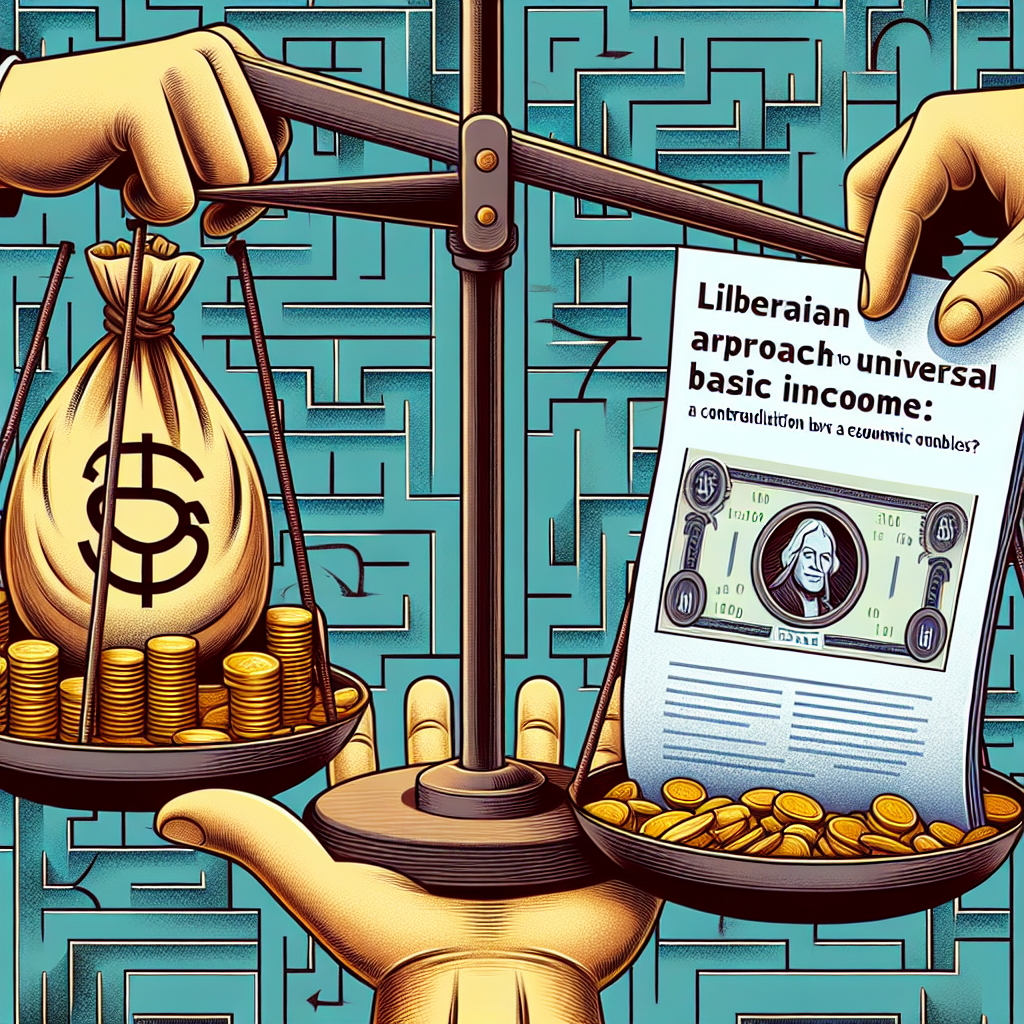Libertarian Approaches to Universal Basic Income: A Contradiction?
The idea of Universal Basic Income (UBI) has garnered attention from various political and economic perspectives, with some proponents arguing it as a solution to poverty and economic inequality. However, the notion of a guaranteed income raises questions when viewed through a libertarian lens. This article explores the intersection of libertarian philosophy and UBI, examining whether these ideologies are fundamentally at odds or can coexist.
Understanding Libertarianism
Libertarianism is a political philosophy that emphasizes individual liberty, personal responsibility, and minimal government intervention. At its core, it advocates for free markets, private property, and voluntary cooperation among individuals. Libertarians champion the idea that individuals know best how to manage their own lives and resources, which raises significant questions regarding government-sponsored income initiatives.
What is Universal Basic Income?
Universal Basic Income is a proposed system where all citizens receive a regular, unconditional sum of money from the government, regardless of their employment status or income level. The key goals of UBI include alleviating poverty, reducing income inequality, and providing a safety net that fosters entrepreneurship and creativity. Given this context, we must analyze whether UBI aligns with or contradicts libertarian values.
The Libertarian Perspective on UBI
Economic Freedom vs. Government Control
Libertarians argue that UBI could increase individual freedom by providing financial security without the conditionality of welfare programs. However, this perspective is complicated by the fact that UBI requires government funding, typically through taxation, which contrasts sharply with the libertarian ideal of minimal state interference.
Argument for UBI in Libertarianism
-
Reduction of Bureaucracy: Some libertarians see UBI as a means to streamline social welfare programs, replacing complex bureaucracies and conditional assistance with a simple cash distribution model. This could potentially lead to a smaller government footprint in the welfare realm.
- Empowerment of Individuals: UBI could empower individuals by giving them the financial freedom to pursue employment opportunities or entrepreneurial ventures without the looming fear of financial ruin, aligning with the libertarian ideal of self-determination.
The Counterargument: A Dependency Trap
Despite these potential advantages, many libertarians argue that UBI can create a dependency on government support. Relying on a guaranteed income could discourage work and self-sufficiency, undermining the libertarian principle of personal responsibility.
-
Moral Hazard: Critics point out that a guaranteed income could lead to moral hazard, where individuals might opt to rely solely on government payments instead of seeking employment or improving their skills.
- Taxation Concerns: Funding UBI often requires significant tax increases, which libertarians oppose. The idea that individuals must be taxed heavily to support universal payments contradicts the libertarian ethos of economic freedom.
Case Studies: Where UBI and Libertarianism Coalesce
Despite the potential contradictions, there are examples of UBI trials and proposals that have garnered support from libertarian circles:
The Alaska Permanent Fund
The Alaska Permanent Fund, which provides annual dividends to residents funded by oil revenues, is a prominent example that has gained traction among libertarians. This program operates without traditional taxation, showcasing how a form of UBI can be funded through natural resource revenues rather than fiscal policy.
Libertarian Advocates for UBI
Some prominent libertarians, such as economist Milton Friedman and venture capitalist Sam Altman, have expressed support for UBI as a pragmatic solution to economic challenges in future job markets increasingly affected by automation.
The Future of UBI in Libertarian Thought
The debate surrounding UBI within libertarian circles is likely to continue evolving. As economic inequalities grow and technological advancements threaten traditional job markets, the need for innovative solutions may lead to reconceptualizing what UBI can mean within a libertarian framework.
A Path Forward: Finding Common Ground
To reconcile UBI with libertarian values, it may require innovative funding solutions such as the aforementioned resource-based models or the implementation of a negative income tax—a system that provides financial support to individuals below a certain income threshold, while incentivizing work and reducing taxation on higher earners.
Conclusion: A Harmonious or Contradictory Relationship?
The discussion around Libertarian approaches to Universal Basic Income reveals an intricate balance between the pursuit of individual freedom and the challenges of government intervention. While many libertarians view UBI as fundamentally contradictory to their principles, others see it as a potential bridge to economic freedom and personal empowerment. As economic circumstances change, the dialogue surrounding UBI will likely continue to develop, challenging traditional libertarian perspectives while promoting innovative economic solutions.
In a rapidly changing world, the quest for a balance between ensuring personal freedom and addressing social equity issues remains a relevant and pressing question. Whether UBI can coexist with libertarian ideals will likely depend on how society chooses to navigate these complex challenges in the future.
Share this content:












Post Comment